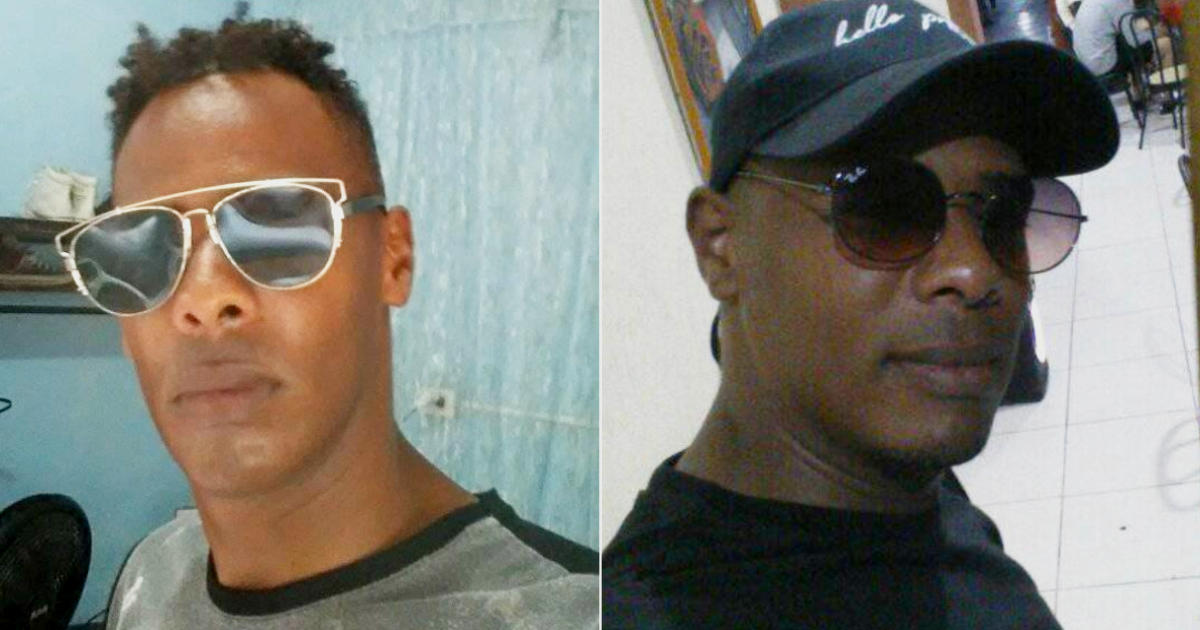Camilo Ochoa, a 34-year-old barber who worked in the El Condado neighborhood of Santa Clara, has been identified as one of the Cuban mercenaries killed while serving Russia in recent military actions during the invasion of Ukraine.
His sister, Bárbara Ochoa, who resides in Santa Clara, confirmed the tragic news to Martí Noticias. “We practically know nothing about him. Our sister, who is in Russia, is handling all the paperwork. He had one month left on his contract in the war,” Bárbara commented.
Like many Cubans in similar situations, Ochoa had high aspirations of escaping poverty and improving his family's life. For this reason, he accepted a contract to participate in Russia's military actions in Ukraine in exchange for a substantial amount of money. On social media, Santa Clara is often mentioned as one of the cities experiencing a massive migration of young people recruited by Moscow.
From Barber to Battlefield
Last year, Ochoa moved to Moscow after being contacted by a young woman who offered him a one-year contract to fight on the Russian side. Less than a month before completing his contract, a bomb took his life along with nine other Cubans serving the Kremlin.
Camilo leaves behind his mother and two daughters, one 12 years old and the other three. His wife, identified on social media as Yamarys Yaray, has yet to receive official confirmation of Ochoa's death and declined further press statements.
“If God decided to take Camilo's life, I don't know because I officially have nothing given to me, and I don't have to give official information to anyone,” she said via phone to the cited media outlet.
The Human Cost
Neighbors revealed that Ochoa’s wife spent several months in Russia before returning to Santa Clara with the intention of buying a house. The news of her husband's death came shortly after her return.
“They won't even return his body. She called the Russian Embassy in Cuba and was told they would hold a mass in Russia and collect some money. She plans to return to Russia and doesn't know how to face that reality,” explained a neighbor who wished to remain anonymous.
Eugenio Martínez, a childhood friend of Ochoa, deeply lamented his friend's death and sent a message to young Cubans: “Upon hearing the news of his death, I think it's important for me as a man, as a person, to tell Cubans not to go to Russia to fight because if you don't fight for your country, why go fight for another?”
Martínez emphasized that he knows no Cuban who has returned alive from the war against Ukraine. “You never achieve your dream of coming back with money from the war. Everyone I know, and there are many, have been killed shortly before their contract ends,” he added.
Cuba's Position
Since Vladimir Putin launched the full-scale invasion against Ukraine on February 24, 2022, Cuba has maintained an ambiguous stance, avoiding direct condemnation of the invasion and echoing Kremlin propaganda in its official media. The presence of Cuban mercenaries on the Russian front was reported following visits from high-ranking Moscow officials to Havana.
In September 2023, following independent media reports on the massive recruitment of Cubans as mercenaries, the regime of Miguel Díaz-Canel promised an investigation and made some arrests, although the detainees were released, and the recruitments continued.
“The misery, hunger, and hardship in Cuba are what drive Cubans to join a war that isn't theirs. All I wish is for Cuba to be free again, to have food and electricity. I wish for nothing more than that. And for no one else to go through what my brother Camilo went through,” concluded Ochoa's childhood friend.
Key Questions About Cuban Mercenaries in Ukraine
Here, we address some of the most pressing questions surrounding the involvement of Cuban mercenaries in the Ukraine conflict, based on the tragic story of Camilo Ochoa.
Why are Cubans participating in the Ukraine war?
Many Cubans, driven by poverty and the desire to improve their family's living conditions, accept lucrative contracts to fight as mercenaries for Russia in the Ukraine conflict.
What has been Cuba's stance on the invasion of Ukraine?
Cuba has maintained an ambiguous stance, avoiding direct condemnation of the invasion and repeating Kremlin propaganda in its official media.
What are the risks faced by Cuban mercenaries in Ukraine?
Cuban mercenaries face significant risks, including death, as many do not survive until the end of their contracts. Reports indicate that most have been killed shortly before their contracts were completed.
What actions has the Cuban government taken regarding the recruitment of mercenaries?
In response to independent media reports, the Cuban government promised an investigation and made some arrests, although the detainees were released, and the recruitments continued.
